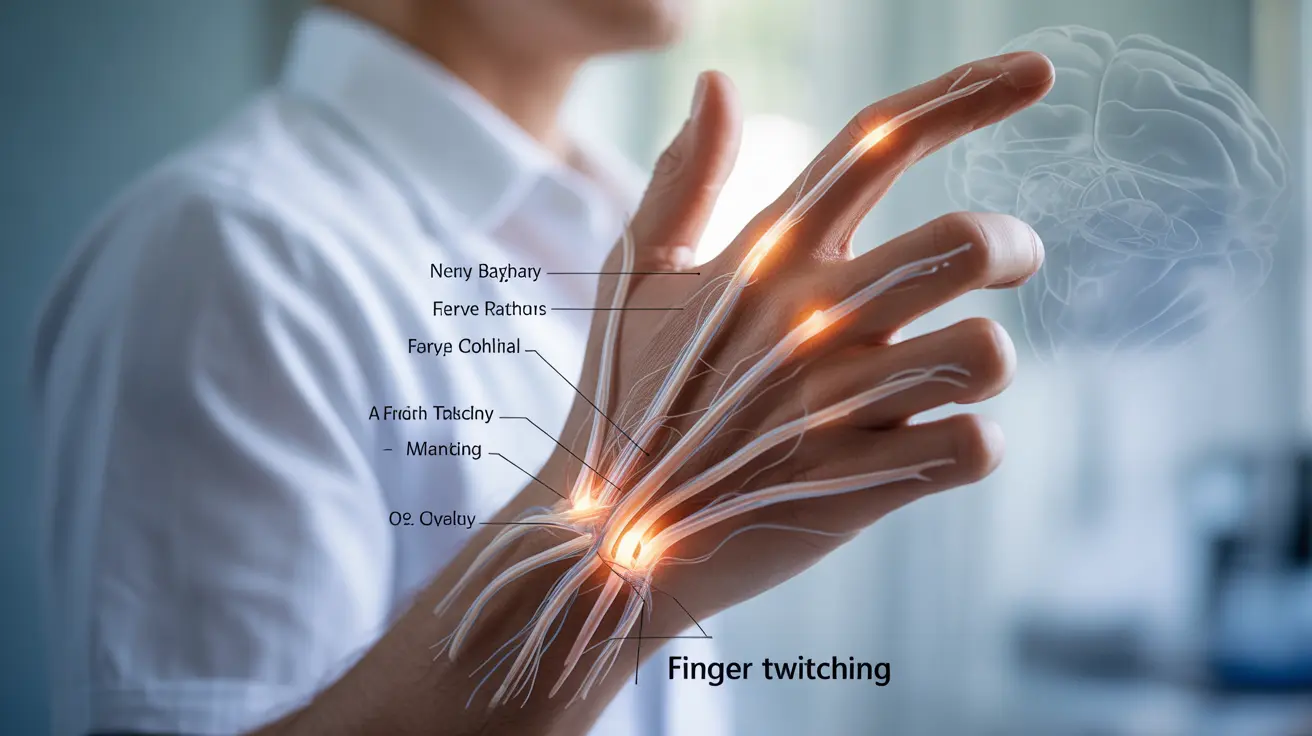Finger twitching, characterized by involuntary muscle contractions in one or more fingers, is a common occurrence that can range from a minor annoyance to a potential sign of underlying health conditions. While occasional twitching is usually harmless, understanding its various causes and triggers can help determine when medical attention might be necessary.
In this comprehensive guide, we'll explore the common causes of finger twitching, examine potential triggers, and discuss when these symptoms warrant a visit to a healthcare provider.
Common Causes of Finger Twitching
Finger twitching can occur due to various factors, ranging from everyday lifestyle habits to more serious medical conditions:
Lifestyle-Related Causes
Several daily habits and lifestyle factors can contribute to finger twitching:
- Excessive caffeine consumption
- Physical exhaustion or fatigue
- Poor sleep quality
- Stress and anxiety
- Prolonged typing or repetitive hand movements
- Dehydration
Nutritional Factors
Certain nutritional deficiencies can manifest as muscle twitches, including:
- Magnesium deficiency
- Vitamin B12 deficiency
- Calcium imbalance
- Potassium deficiency
Medical Conditions Associated with Finger Twitching
While most cases of finger twitching are benign, some medical conditions can cause this symptom:
Neurological Conditions
Several neurological disorders may present with finger twitching as a symptom:
- Benign fasciculation syndrome
- Carpal tunnel syndrome
- Multiple sclerosis
- Parkinson's disease
- Essential tremor
Other Medical Causes
Additional medical factors that might trigger finger twitching include:
- Medication side effects
- Thyroid disorders
- Autoimmune conditions
- Peripheral neuropathy
Prevention and Management
Several strategies can help reduce or prevent finger twitching:
- Limiting caffeine intake
- Maintaining proper hydration
- Getting adequate sleep
- Managing stress through relaxation techniques
- Taking regular breaks from repetitive hand movements
- Ensuring proper nutrition and vitamin intake
When to See a Doctor
While occasional finger twitching is usually not cause for concern, certain situations warrant medical attention:
- Persistent twitching lasting several days
- Twitching accompanied by weakness or numbness
- Progressive worsening of symptoms
- Twitching that interferes with daily activities
- Additional neurological symptoms
Frequently Asked Questions
What are the most common causes of finger twitching and when should I be concerned?
Finger twitching is commonly caused by stress, fatigue, excessive caffeine intake, and nutritional deficiencies. Be concerned if twitching persists for several days, is accompanied by other symptoms, or interferes with daily activities.Can stress, fatigue, or caffeine intake cause my fingers to twitch?
Yes, these are among the most common triggers for finger twitching. Reducing caffeine intake, getting adequate rest, and managing stress can help alleviate these symptoms.How do vitamin deficiencies like magnesium or vitamin B12 affect finger twitching?
Magnesium and vitamin B12 deficiencies can cause nerve dysfunction and muscle contractions, leading to twitching. Proper supplementation under medical supervision can help address these deficiencies.What medical conditions or medications can lead to persistent finger twitching?
Various conditions including benign fasciculation syndrome, carpal tunnel syndrome, and neurological disorders can cause finger twitching. Certain medications, particularly those affecting the nervous system, may also trigger this symptom.When is it necessary to see a doctor or neurologist for finger twitching symptoms?
Consult a healthcare provider if twitching persists for more than a few days, is accompanied by weakness or numbness, progressively worsens, or occurs alongside other neurological symptoms.




